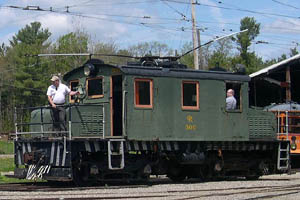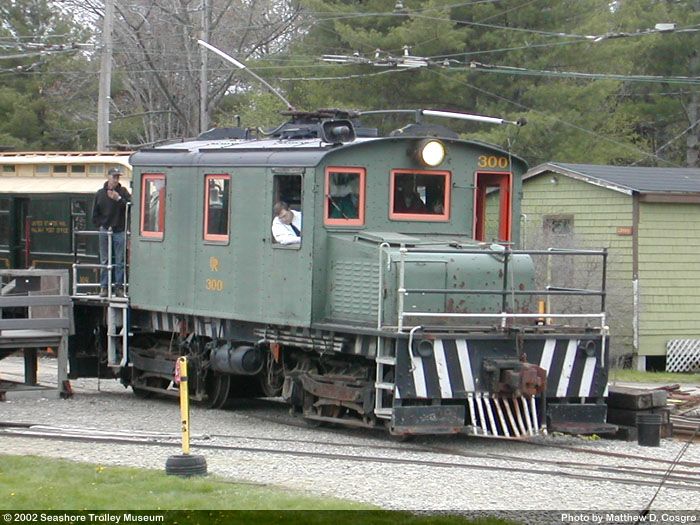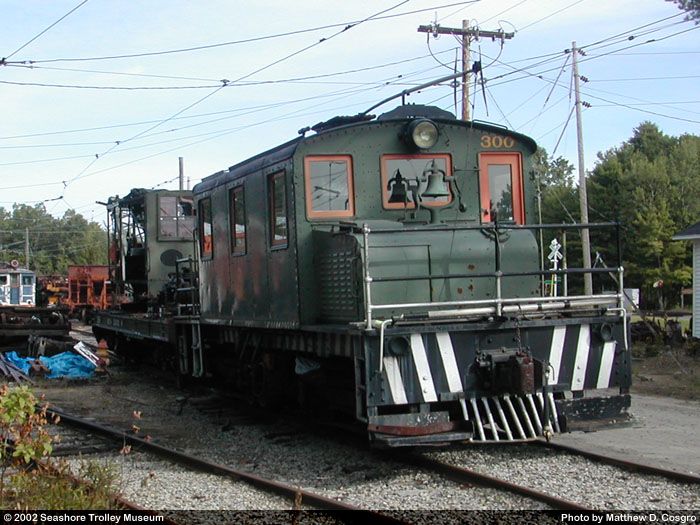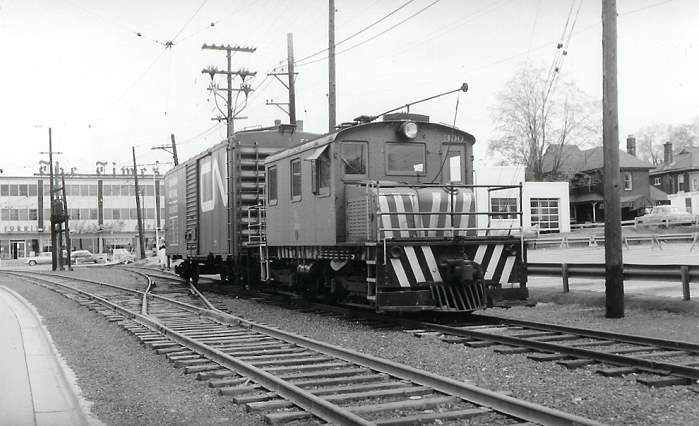
- Builder
- Baldwin Locomotive Works
- Description
- 50-ton Steeple cab locomotive
- Secondary Use
- None
- Type
- Locomotives, RPOs, Baggage and Express
- Year
- 1920
- Retired from Service
- 1964
- Acquired by the Museum
- 1964
- Fund
- 790
- Sponsor/Manager
- None
Oshawa Ry. 300
From Oshawa, Ontario
History
No. 300 is a typical locomotive used by interurban lines and electrified steam railroads for hauling freight. It is a 600 volt, Class B electric locomotive built by Baldwin-Westinghouse in 1920 for the Central Limones Railway as their No. 26. (Westinghouse Electric supplied the electrical equipment, and Baldwin Locomotive Works built the body.) Central Limones was a 33 mile line in Matanzas Province, Cuba for hauling sugar cane. Central Limones defaulted on the purchase, and apparently the locomotive never actually operated in Cuba.
Oshawa Railway acquired the locomotive in 1923 and numbered it 300. Oshawa Ry. substituted trolley poles for the original pantagraph. The Oshawa Ry. had opened in 1895 as an electric railway connecting the Grand Trunk Railway on the north side of Oshawa, Ontario with the port on Lake Ontario. The Oshawa Ry. operated partly on city streets and carried both passengers and freight. The line became a Grand Trunk subsidiary in 1912. It then became a Canadian National Railways subsidiary when the CN absorbed the GT in 1923, about the time that No. 300 was purchased. Although passenger service ended in 1940, No. 300 and other OR locomotives continued to haul freight, with a General Motors plant being the largest customer. After 1959, the railway began abandoning its street trackage. On May 11, 1963, large crowds watched No. 300 pull the last freight train on King Street before the abandonment of that track. In 1964, the Canadian National absorbed the Oshawa Railway and converted the remaining operation to diesel operation.
Seashore purchased No. 300 from the Canadian National Railways for U.S. $1,300 when the Oshawa Ry. dieselized in 1964. Two other museums also acquired Oshawa electric locomotives. No. 300 came to Seashore by rail on its own wheels via CN and Boston & Maine Railroad. Ben Minnich termed No. 300 “Seashore’s best pulling locomotive.”
Technical Information
- Control: Westinghouse HLF-337D2
- Brakes: 14EL
- Compressor: D3
Trucks
- Number: 2
- Manufacturer: Baldwin
- Model: MCB
Motor
- Number: 4
- Manufacturer: Westinghouse
- Model: 552FA17
Weight and Dimensions
- Length: 36’
- Width: 10’
- Height: 12’ 7.00"
- Weight: 100000 lbs.
Additional Images

Matthew D. Cosgro in 2002

Matthew D. Cosgro in 2002

On Oshawa Railway May 11, 1963
© 1998 - 2026 New England Electric Railway Historical Society. All Rights Reserved.